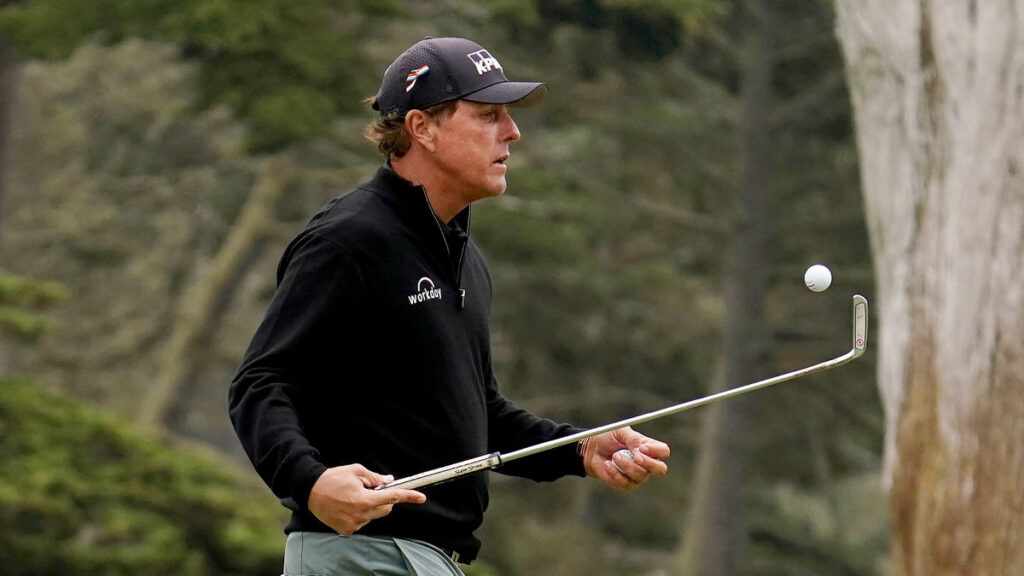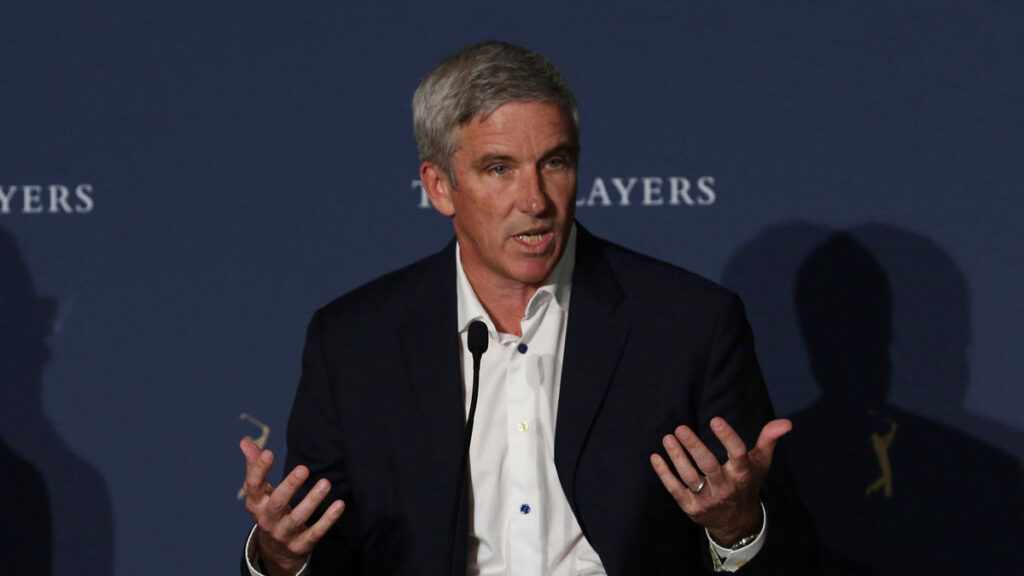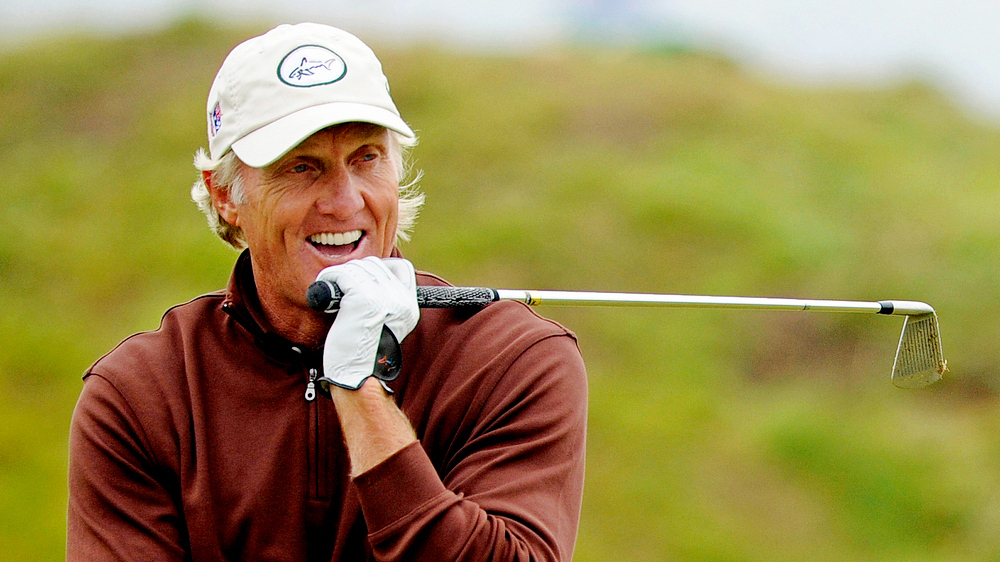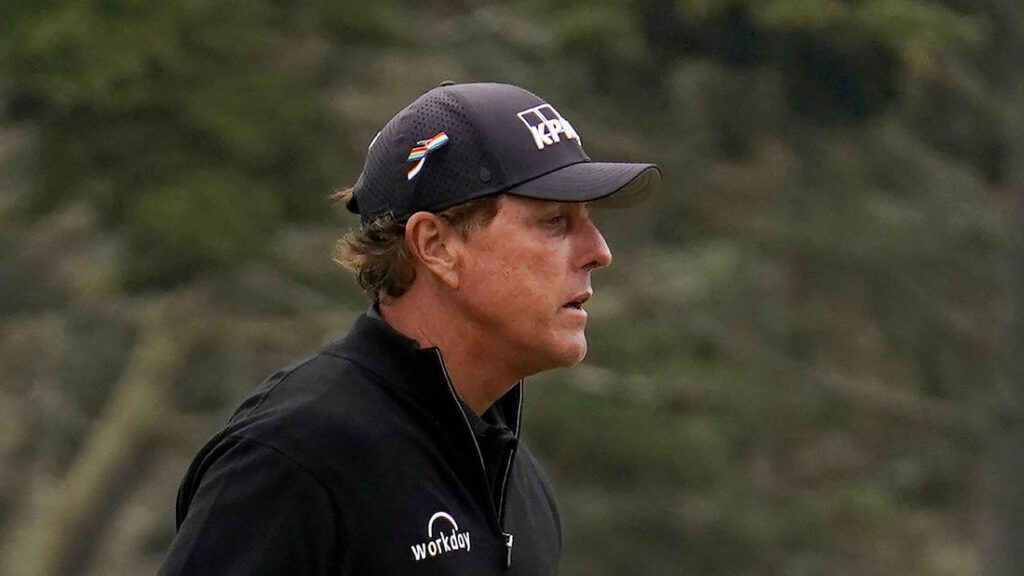LIV – Was Mickelson Right

Estimated reading time: 9 minutes
ATLANTA, GA. Wednesday’s press conference by PGA Tour commissioner Jay Monahan was a full-bore effort to both stabilize the group’s existing position and provide a compelling counterpoint in its ongoing tussle with the rival LIV operation.
The most fascinating aspect from Monahan’s sweeping announcement was how prescient Phil Mickelson was when stating several months ago the following comments.
“They’ve (PGA Tour) been able to get by with manipulative, coercive, strong-arm tactics because we, the players, had no recourse,” Mickelson said in February to golf writer Alan Shipnuck. “As nice a guy as (commissioner Jay Monahan) comes across as, unless, you have leverage, he won’t do what’s right.”
As a six-time major champion and winner of 45 PGA Tour events, Mickelson’s standing in the sport provided him a clear platform. Matters were considerably helped by the 52-year-old becoming the first to win a major event — the 2021 PGA Championship — at the age of 50.
The centrality of relevance
The first underlying principle for any organization that operates in the public realm is continued relevance. For any sports organization that states unequivocally they have the best players competing under their umbrella.
The moniker for the PGA Tour has long been that “these guys are good” — highlighting the depth of talent that competes on its circuit. Having to modify that to “some of these guys are good” is not a pathway to a successful future.
The existence of LIV demonstrated for players like Mickelson and those following him a clear alternative to the manner they believe the PGA Tour has long operated.
Maintaining relevance in the broader sports world comes from having supportive and engaged sponsors, television networks providing a weekly connection and wider appeal among the fan base. The emergence of LIV placed the monopoly of the PGA Tour in serious question among all of the aforementioned groups.
The Monahan press conference on the eve of the Tour Championship was a comprehensive rollout by the PGA Tour in order to cut-off the drip-by-drip procession of players leaving and setting up camp with LIV.
Losing relevance meant losing credibility. At that crucial point — survivability would be front and center.
Survivability – The core topic
Sports organizations, whether they be the National Football League, the Premier League, Major League Baseball, the PGA Tour, et al, need relevance in order to demonstrate survivability for the long term.
Would the PGA Tour, through the statements made by Monahan , implement the sweeping overhaul by which they operate in the golf lane had LIV not existed?
No one can say with 100% certainty but it is doubtful the brain trust of the PGA Tour would have done so without the existence of LIV at this point in time.
Sports leagues are highly structured organizations and over the course of time can become bureaucratic and predictable. While predictability can be a plus in the current moment — it can also become an anchor preventing a clear-eyed assessment on what’s needed for the future. The PGA Tour has to have an engaging product and depth of players to keep from sliding backwards.
Far too many such organizations become wedded to the past — erroneously believing more of the same will suffice.
The existence of LIV and its growing role in professional golf cut to the core for the PGA Tour, as it does for any corporation — change or wither away.
Survivability can be a glaring motivator. Survivability puts into motion a range of actions that in past times would never have been considered.
Monahan’s statements Wednesday illustrate a growing reality that past performance is no longer a pathway that will ensure viability and overall dominance for the PGA Tour.
One can only wonder if all the actions announced by Monahan were needed — why did the PGA Tour wait until now to announce them? One then must refer back to the comments made by Mickelson.

Successful organized groups often times need to be prodded into making sweeping changes — especially those involving considerable sums of money. LIV’s involvement in professional golf and the steady procession of players was the tipping point for action by the PGA Tour. To see a winning future going forward – a range of significant modifications to the core operating structure were a must action item. Survivability has a way of making people go in a direction they initially resisted but now see clearly in going forward.
That cause and effect were not lost on players.
“Well, I think certainly it’s impossible to not think that that was a catalyst for continuing to want to make sure that the players that we have on the PGA Tour now stay on the PGA Tour,” said three-time major winner Jordan Spieth ahead of this week’s Tour Championship at East Lake Golf Club in Atlanta. “Would this have gone that direction this soon? Maybe not, but to say that it wouldn’t have happened in general, I’m not sure.
“But I think that that (LIV) certainly has been a catalyst for looking at the product as a whole and figuring out how to make it the best it can possibly be and maximize the strength of fields at the biggest events.”
The role of leverage
Unlike other sports organizations — the PGA Tour, prior to the ascendancy of LIV, operated under a clear monopoly position. Golfers worldwide totally understood that to play for the biggest purses against the most talented players on the planet meant becoming a member of the PGA Tour.
There was no other meaningful option to consider.
Those able to secure status on the PGA Tour could decide their respective schedules but the Tour did impose a minimum 15-tournament requirement in order to maintain your presence. The concept of being an “independent contractor” was illusory since the Tour would need to sign-off on players being able to compete elsewhere against a Tour event.
The elite players in golf were also grouped together with those at the non-elite level. The operations of the PGA Tour put into place a structure where the needs of the group outweighed the needs of the few. That specific platform is what provided LIV the mechanism to put into place a system that only caters to the few.
On the PGA Tour, for example, a Justin Thomas ranked 7th in the world and 9th on the PGA Tour money list is no more important to the process than a Jhonathan Vegas ranked 110th in the world and 114th on the current PGA Tour money list.

Such a system only marginalizes the elite players and what they see as the growing role they play in the overall scheme of things. But since the PGA Tour is the only outlet for their involvement — the leverage they have in creating such changes is minimal. Mickelson’s comments on this specific point were accurate. Where Mickelson lost considerable traction and impact was the alignment of LIV as a prop for the Saudi government’s involvement and its use of “sportswashing” as a means to promote itself in the golf lane.
Mickelson acknowledged as much in subsequent comments but his central point that elite players were not being paid sufficient attention is what lies at the core of what Monahan announced Wednesday.
To play for the biggest purses PGA Tour players — unlike the NFL or MLB — do not have a player’s union that can announce a job action in which players refuse to play and thereby strike. You either accept the rules and regulations of the PGA Tour or you play elsewhere.
With LIV coming onto the scene — a lucrative alternative emerged and many opted to jump ship — Mickelson at the front of the line.

What lies ahead?
The key for any organization is not the past — but the future. Cultivating and capturing the pipeline of talent that encompasses the next generation of young players is what ultimately decides the winner.
Monahan’s announcement Wednesday outlined a series of initiatives to assist those entering the early stages of their professional careers. Providing a stipend ($500,000) for eligible players and including travel cost reimbursements ($5,000 when missing a cut) are just two elements the PGA Tour would likely never have brought forward without LIV’s existence.
The LIV model has brought on board a number of marquee players, however, the bulk of them are in the late stages of their careers. LIV has a planned 14-event schedule for ’23 and there are pending announcements for new players joining with the next event set for the immediate Boston area (September 2-4). There are still pivotal issues needing resolution such as world ranking points, a television contract and if the major championships will permit LIV players to compete in those events in ’23.
On the flip side — Monahan and the star players on the PGA Tour have agreed to a 20-event must play schedule for ’23. This is “unprecedented,” according to the commissioner, as players previously were able to solely decide where and when they would play. Purse sizes were raised substantially — to a max of $20 million — and there is little doubt “elevated” event sponsors needed assurances elite players would be competing at those respective events.

The PGA Tour is still under investigation by the U.S. Department of Justice in the manner by which it has operated against LIV. There is also a lawsuit brought by certain LIV players against the PGA Tour which will be heard in January, 2024.
Monahan was emphatic when asked about the possibility of those who have defected coming back to the PGA Tour. His answer was simple and direct — “no.”
The situation is ever fluid and more twists and turns are likely inevitable.
Mickelson’s statement this past February about securing leverage against the PGA Tour has put into a motion a game plan few thought possible before the ’22 season draws to a close.
LIV is most certainly not fading away and the PGA Tour leadership now knows that reshaping the way it operates was an absolute necessity. Could the PGA Tour have acted sooner? A debatable point. Taking preemptive action and implementing the reforms stated Wednesday could have provided a mechanism for those who ultimately did defect to remain.
Can a way be found that brings the PGA Tour and LIV together as Greg Norman, CEO of LIV Golf Investments envisions. That appears unlikely at this time. If anything — the castle walls of the PGA Tour have just been raised higher. The more salient question going forward is whether those walls are high enough in keeping existing players satiated to remain?
The answer to that question remains to be seen.
